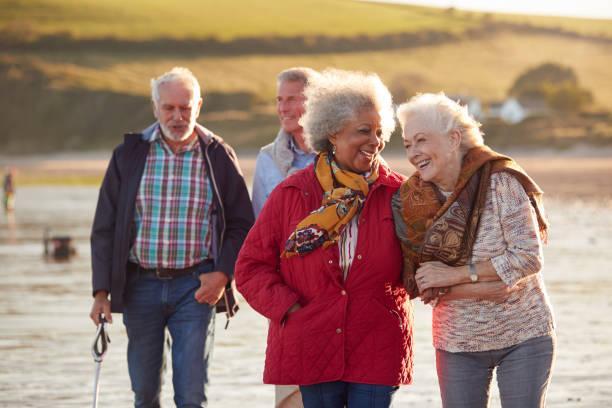It’s National Walking Month, where we are all encouraged to be more active through walking, whether it’s something we already do frequently or would be taking up a new hobby.
It’s also a great time of year to start walking more with the evenings becoming lighter and longer. Not only will it encourage you to be more active but swapping a short drive for a short walk would help reduce air pollution, congestion, and road danger – and would save money on fuel, too.
The benefits of walking are a great reason to take part in National Walking Month. It’s good for your mental and physical health and can prevent the risk of health conditions like certain cancers, heart disease, type 2 diabetes, and depression.
Walking can benefit you in numerous ways:
- It’s good for your heart: It strengthens your heart and reduces the risk of heart disease and strokes. In fact, a 30 minute walk a day is said to reduce your risk of a stroke by 27%.
- It can lower the risk of dementia: Someone older who walks a least six miles a week is less likely to have problems such as dementia – walking can help prevent your brain from shrinking.
- It gives you energy: It may seem strange, but if you’re feeling lethargic, lazy, and slow, going on a walk could improve your energy levels. This is because it boosts your circulation and increases the oxygen supply around your body, which helps you to feel alert and awake.
- Vitamin D: Going on a walk means you’re being active as well as getting some Vitamin D, which is good for your bone health and your immune system.
- It makes you happy: Just like it makes you feel energised, walking can really help improve your mood and make you feel happy. If you’re suffering from depression or anxiety, or generally feel stressed, a walk could really help.
There are different fundraising events during National Walking Month, for all different ages. This year is the #try20 challenge, where you walk 20 minutes a day for the month. Some people also challenge their friends and family to see who can walk the furthest during the month.
There is also a Walk to School Week (21-25 May), where you can donate what you would have spent on travel. You can donate to Living Streets to help fight pollution and congestion, to help make the streets safer for walking, and to support the more isolated members of our communities through walking projects.For the elderly, getting involved doesn’t have to mean large amounts of walking if they are less physically able. There is a project called Walking Connects which provides resources to help them start or maintain walking habits.
For those who can get outside and walk, planning routes that have resting places along the way would be advisable. However, if you’re unable to get outside or walk too far, you could walk around your garden as much as possible if you have the facilities to do so.Try to avoid sitting down for long stretches of time. Setting an alarm for every hour or two to get up and stretch your legs and walk around the house might be a good way to participate. Clearing a path for this, such as moving furniture so you have little chance of tripping over anything, could help if you aren’t confident on your feet.
For more information on National Walking Month and for how to get involved, visit this website.





